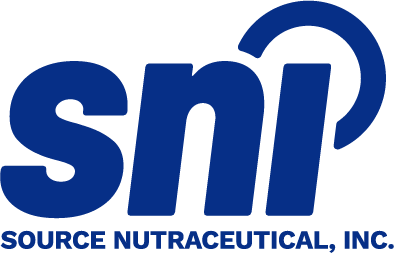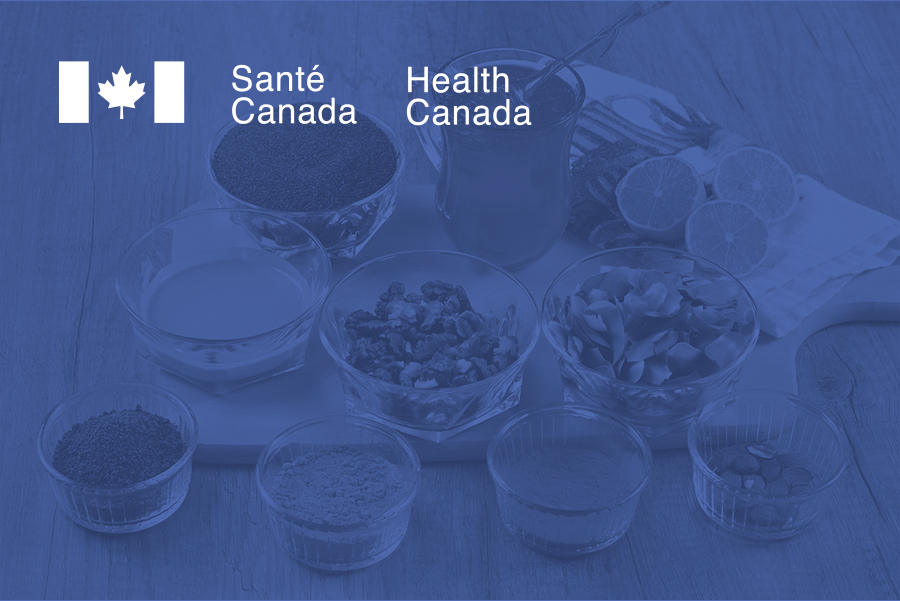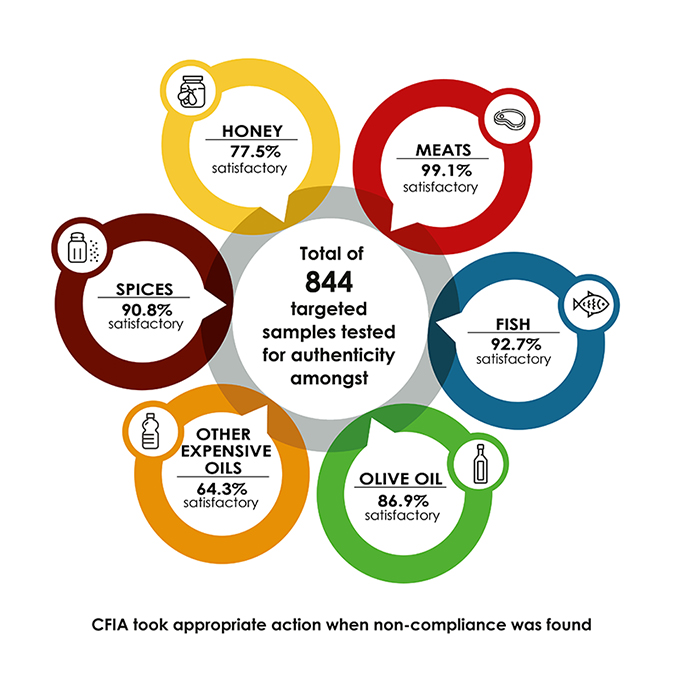Nobody wants to feel taken advantage of, and we all generally want to believe that the food we purchase is what it says it is – but is this the case?
Food fraud includes many different types of food misrepresentation including mislabeling, adulterating, substituting lower quality ingredients, and making false or misleading claims. This practice can pose significant health, economic, and ethical risks for consumers and the food industry.
Around the world, food fraud is most often reported for the following:
Olive Oil
Honey
Dry Spices
Fish
Fruit Juices
Organic Food Products
In their 2021-2022 Annual Food Fraud report, the Canadian Food Inspection Agency (CFIA) summarized the results of its surveillance efforts in the below infographic.
Source: Food Fraud Annual Report 2021 to 2022; 20th day of Oct, 2023. Government of Canada [Our research and publications] - canada.ca/CFIA/Science and Research
They were looking at specific types of misrepresentation amongst the labelled food categories, including adulteration of olive oil with cheaper oils and adulteration or dilution of single ingredient ground spices by addition of bulking agents, dyes and other unpermitted ingredients.
Food products are sometimes labelled falsely, either to inflate their value or to mask their actual origin, putting consumers at risk and undermining the integrity of the food supply chain.
While there are many, more examples of intentional food fraud, some can also be unintentional misrepresentation due to errors made early in the process. Examples of this could include:
- Improper nutrition analysis calculations, resulting in the wrong values declared on the label.
- Incorrectly overstating the net weight of a food product, so a consumer believes there is more in the package.
- Using the wrong common name which could be associated with a standardized product, when the standard is not met.
The regulatory bodies in Canada and the US, such as the Canadian Food Inspection Agency (CFIA) and the U.S. Food and Drug Administration (FDA), are actively working to combat food fraud by implementing stringent regulations and conducting inspections. These efforts aim to enhance transparency, traceability, and accountability within the food industry to reduce the occurrence of fraudulent activities.
Consumers can protect themselves by being vigilant and informed about the products they purchase, through reading labels, and supporting reputable producers and retailers. Additionally, continued efforts from government agencies, industry stakeholders, and the public are crucial to mitigate the impact of food fraud and to ensure a safer and more reliable food supply for all.
Being aware of the relevant government regulations is the first step to prevent this unintentional food fraud and the negative implications that come with it.
Contact us at info@sourcenutra.com for all your industry inquiries.





